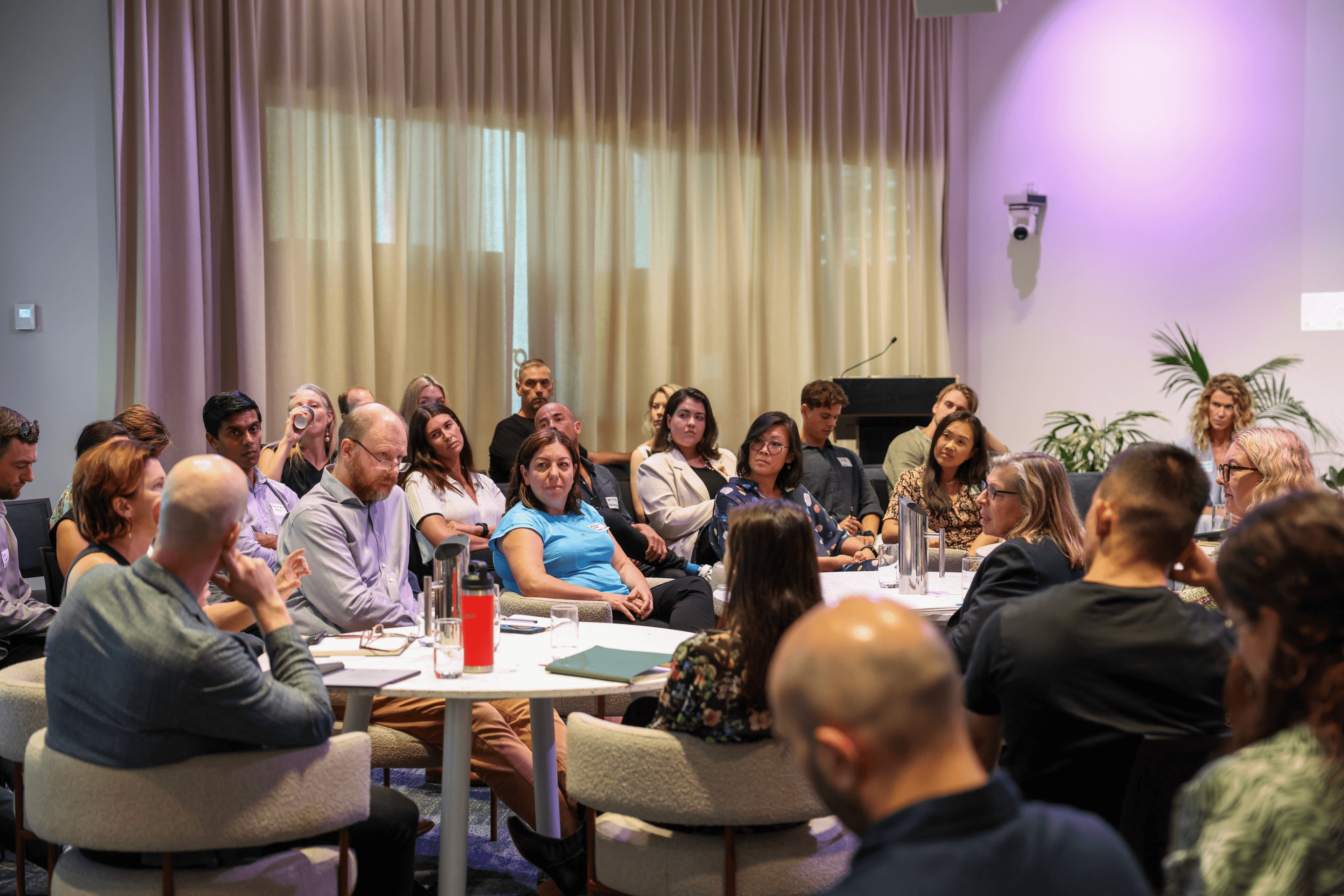
13 March 2025, 10:30 AM–12:00 PM AEDT
Greenhouse Tech Hub, 180 George St, Sydney
Bridging the Corporate Innovation Divide
Large organizations set ambitious net-zero targets and drive a critical demand for innovative climate technologies. Startups face prolonged procurement cycles that inhibit fast integration of breakthrough solutions. Real-world pilot projects validate emerging technologies and create a measurable pathway to sustainable practices. Ecosystem players, including incubators and universities, reduce friction and support rapid technology adoption.
Summary
Corporates demand innovation to meet net-zero objectives and establish industry standards.
Startups overcome rigid internal structures by engaging in the co-design of targeted pilot projects.
Collaborative models focus on long-term strategic planning while addressing current operational challenges.
Regulatory alignment and decisive stakeholder commitment form the backbone of scalable climate tech solutions.
Context and Objectives
Collaboration strategies must address inherent procedural delays and outdated internal cultures.
Smart partnerships and designated champions accelerate the adoption of innovative climate solutions.
Real-world testing and rapid prototyping validate technology readiness and market fit.
Engagement from diverse ecosystem actors such as universities and accelerator hubs drives continuous progress.
Corporate Innovation Demand
Corporates set ambitious net-zero targets that trigger early adoption of disruptive climate technologies.
Streamlined Collaboration
Aligning objectives and empowering cross-functional teams mitigate barriers to effective startup engagement.
Pilot Project Efficacy
Rapid proofs of concept deliver measurable insights that accelerate investment and scalability.
Ecosystem Synergy
Partnerships with universities, incubators, and innovation hubs integrate diverse expertise to scale solutions.
Setting the Stage – Corporate Ambition & the Innovation Imperative
Key discussion points
The panel examines how ambitious targets fuel the need for innovative technologies in established organizations.
Ambition as a Driver
- Ambitious climate targets create definitive innovation demands.
- Early technology adoption emerges from recognized sustainability goals.
Overcoming Internal Barriers
- Simplified internal processes and empowered champions expedite pilot approvals.
- Collaborative frameworks reduce delays in integrating new technologies.
Panelists
Speakers




Mel Sibraa strategizes new business models to decarbonize energy networks and foster startup collaborations.
Moving to Scale – Bridging the Divide with Practical Strategies
Key discussion points
The panel focuses on pragmatic approaches that overcome organizational barriers and scale collaborative climate solutions.
Collaborative Pilot Projects
- Stakeholder alignment accelerates pilot implementations.
- Regulatory engagement fosters scalable innovation.
Standardizing Processes
- Defined roles expedite the co-design process.
- Consistent frameworks reduce systemic delays.
Panelists
Moderator

Head of Sustainability for Asia Pacific at GHD
Speakers



Insights
Industrial Strategy and Execution
- Corporates set clear net-zero targets that drive solution-oriented innovation.
- Pilot projects demonstrate the feasibility and scalability of emerging technologies.
- Agile, cross-functional teams expedite decision-making and resource deployment.
Collaborative Ecosystem Development
- Partnerships reduce procedural delays and enhance mutual benefits.
- Integrated ecosystems accelerate the adoption of climate solutions.
- Regulatory engagement and standardized protocols support long-term scalability.
Conclusion
Large organizations are setting ambitious net-zero targets, which is driving demand for new climate technologies. The event showed that pilot projects and collaborative models can help overcome slow procurement cycles and internal resistance, making it easier to validate and scale innovative solutions.
Success depends on clear leadership, cross-functional teams, and strong partnerships with universities and incubators. By focusing on practical strategies and measurable outcomes, corporates and startups can bridge the innovation divide and accelerate the adoption of climate solutions.
Strategic Alignment: Corporate innovation depends on unified leadership and empowered, cross-functional teams.
Accelerated Pilot Validation: Rapid proofs of concept demonstrate technology readiness and enable scalable implementation.
Ecosystem Integration: Engagement with universities and incubators mitigates systemic barriers and accelerates market adoption.
